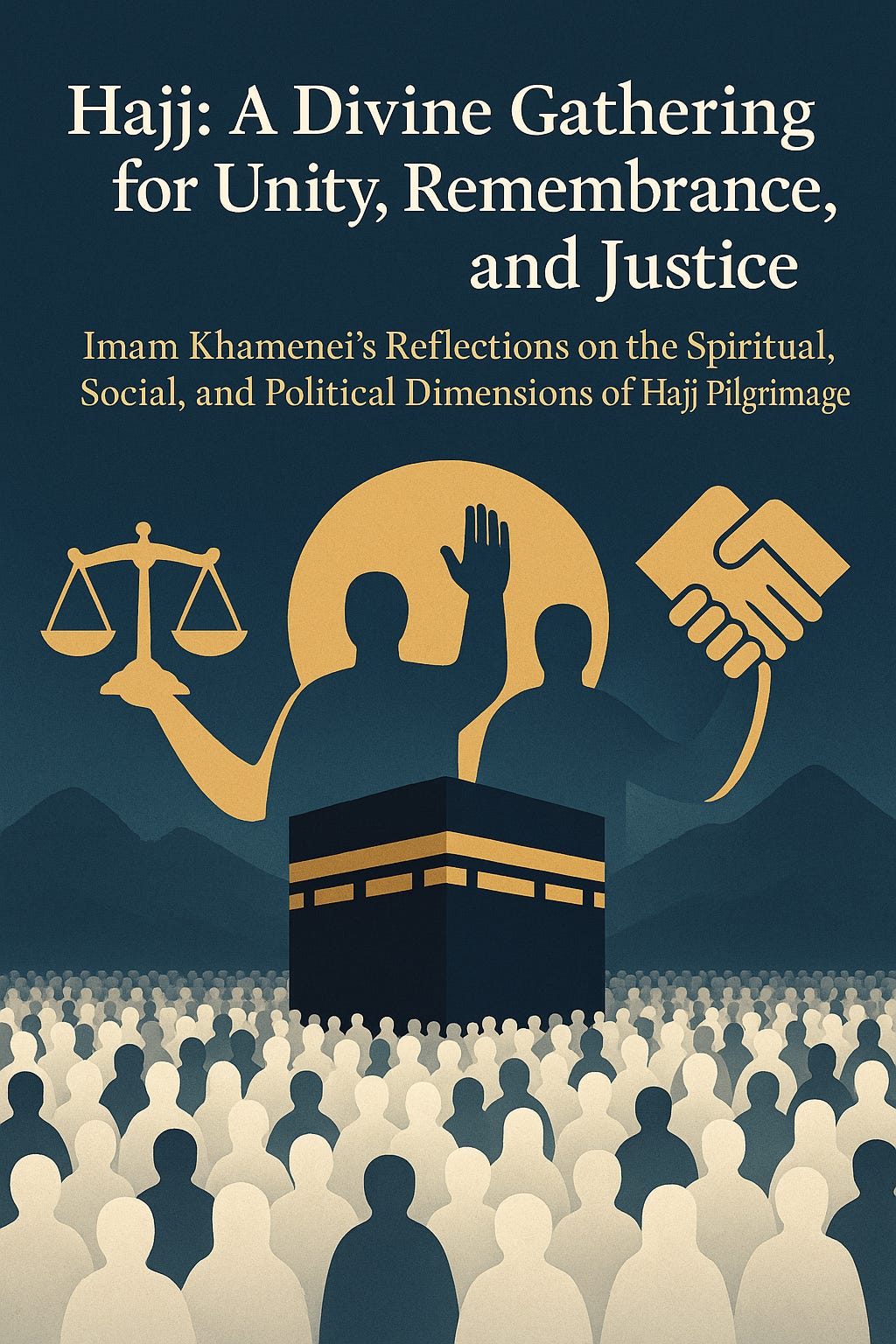Hajj: A Divine Gathering for Unity, Remembrance, and Justice
Imam Khamenei’s Reflections on the Spiritual, Social, and Political Dimensions of the Hajj Pilgrimage
The Hajj pilgrimage, one of the five pillars of Islam, stands as a unique convergence of spiritual devotion, social unity, and political consciousness. In recent addresses to Hajj officials and pilgrims, Imam Khamenei, the Leader of the Islamic Revolution, has emphasized the profound significance of Hajj, urging Muslims to recognize its multi-layered dimensions and its vital role in shaping both individual character and the collective destiny of the Muslim Ummah.
The Spiritual Core: Remembrance of God
At the heart of Hajj lies zikr—the remembrance of God. Imam Khamenei highlights that every ritual, from donning the Ihram to the Tawaf around the Kaaba, from the Sa’i between Safa and Marwah to the standing at Arafat, is imbued with the remembrance of the Divine. This constant focus on God, he explains, is not merely a spiritual exercise but the very essence of life, shaping the will, determination, and actions of individuals and nations. The Quranic verses recited during Hajj repeatedly call on pilgrims to remember Allah, making this remembrance the foundation for both personal salvation and societal success.
Hajj as a Gathering for Unity
Imam Khamenei underscores that Hajj is not only a personal journey but a collective event designed to foster unity among Muslims. The Quranic invitation to Hajj is addressed to “nas”—all people—signifying that the pilgrimage is meant to bring together diverse communities, transcending racial, ethnic, and sectarian differences. In the sea of white Ihram, distinctions vanish, and Muslims stand equal before God, symbolizing the ideal of unity and solidarity. Imam Khamenei asserts that if the Islamic Ummah could achieve true unity, many of the tragedies afflicting the Muslim world, such as the ongoing suffering in Gaza and Yemen, could be averted. He calls on Islamic governments, scholars, and influencers to clarify the true objectives of Hajj and to use this gathering as a platform for strengthening bonds and mutual understanding.
The Political and Social Message: Renunciation of Oppression
Beyond its spiritual and unifying aspects, Hajj carries a powerful political message. Imam Khamenei describes Hajj as the only religious obligation whose form is entirely political, gathering people annually for a common purpose. This year, he stresses, the concept of bara’at—renunciation of the oppressors—is more prominent than ever. Drawing from the example of Prophet Abraham, who combined compassion with firm opposition to injustice, Imam Khamenei urges pilgrims to express clear disavowal of those who oppress, expel, and kill the innocent, particularly referencing the Zionist regime’s actions in Palestine and the support it receives from global powers.
He points out that the events in Gaza are not only a Muslim issue but a human one, and the unprecedented global reactions, including protests in Western universities, signal a broader awakening. Hajj, therefore, becomes a stage for Muslims to declare their solidarity with the oppressed and to call for justice, echoing the Quranic injunctions to stand against tyranny and support the downtrodden.
Conclusion: Hajj as a Service to Humanity
Imam Khamenei concludes that the proper conduct of Hajj is a service not only to Muslims but to all humanity. By embodying the principles of remembrance, unity, and justice, Hajj offers lessons that extend far beyond the days of pilgrimage. It is a call to build societies on the foundation of Tawhid (monotheism), to strive tirelessly against hardship, to sacrifice for higher ideals, and to confront oppression wherever it exists.
As pilgrims gather in Mecca, they are reminded that their journey is both a personal transformation and a collective responsibility. The message of Hajj, as articulated by Imam Khamenei, is clear: it is a divine opportunity to unite, to remember, and to secure the interests of the entire Ummah and, ultimately, all of humanity.
Reference: The Official Website of Ayatullah Khamenei


